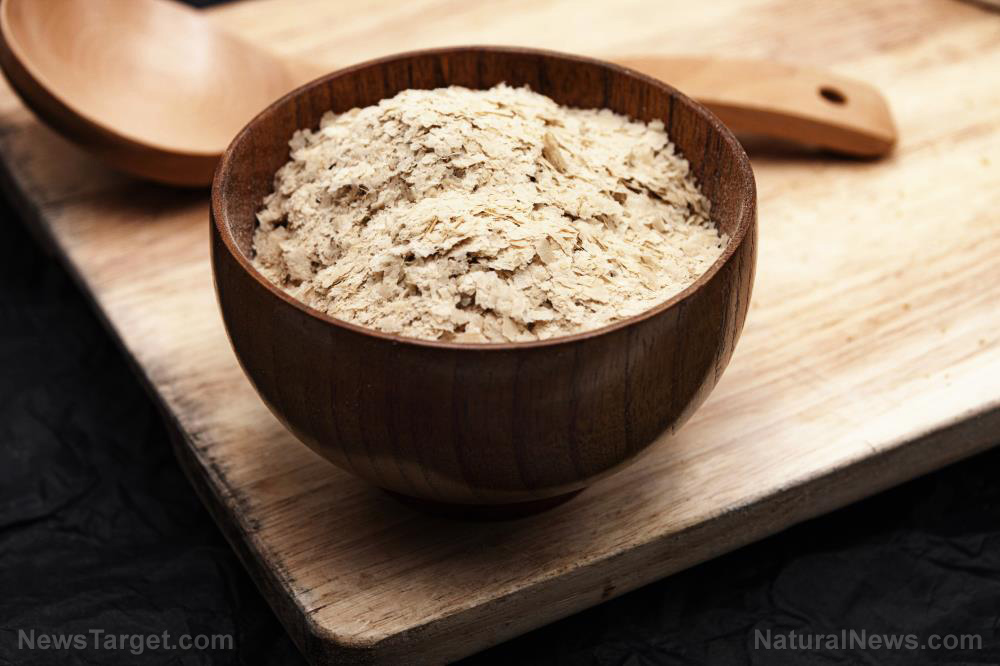
Advertisement
A fiber-rich diet is known for maintaining a healthy digestive system, but did you know that it’s also beneficial for bone health? A study published in Nature Communications revealed following a fiber-rich diet has a positive effect on chronic inflammatory joint diseases like arthritis, resulting in stronger bones.
Researchers at Friedrich-Alexander-Universität Erlangen-Nürnberg (FAU) treated mice with a high-fiber diet and short-chain fatty acids propionate and butyrate, the main metabolites produced when good gut bacteria ferment fiber in the colon. These fatty acids can be located in the joint fluid, and it is believed that they have beneficial effects on joint function.
The results of the experiment revealed that the treatment of a high-fiber diet and short-chain fatty acids significantly increased bone and mass and prevented postmenopausal and inflammation-induced bone loss. The protective effects of short-chain fatty acids on bone mass are linked to the inhibition of osteoclast differentiation and bone resorption. These suggested that short-chain fatty acids are potent regulators of osteoclast metabolism and bone homeostasis.
Following a diet rich in fiber can affect gut bacteria by producing more SCFAs. In turn, more of these fatty acids, such as in bone marrow, may slow down bone degradation. In the study, propionate, in particular, caused a reduction in the number of bone-degrading cells in bone marrow.
“We were able to show that a bacteria-friendly diet has an anti-inflammatory effect, as well as a positive effect on bone density,” explained Dr. Mario Zaiss, leader of the study.
These results indicate that it is not the intestinal bacteria themselves, but their metabolites that influence the immune system and have a preventive effect on autoimmune diseases such as rheumatoid arthritis. However, the researchers still do not know how intestinal bacteria and the immune system communicate. (Related: New study connects fiber-rich diet and intestinal bacteria with strong immune system.)
“We are not able to give any specific recommendations for a bacteria-friendly diet at the moment, but eating muesli every morning as well as enough fruit and vegetables throughout the day helps to maintain a rich variety of bacterial species,” suggested Zaiss.
The study’s findings offer a promising approach for the development of alternative treatments for inflammatory joint diseases and osteoporosis, which is often experienced by postmenopausal women.
Other benefits of following a fiber-rich diet
Eating more fiber has many other benefits. These include the following:
It aids in weight loss and weight management: A study published in the journal Annals of Internal Medicine found that increasing your fiber intake will help you shed pounds. In the study, dieters who consumed at least 30 grams (g) of fiber per day lost a significant amount of weight, losing as nearly as much as those who followed a much more complex diet that required limiting calorie, fat, sugar, and salt intake and increasing consumption of fruits, vegetables, and whole-grain. Foods rich in fiber will fill you up faster and keep you satisfied longer. They also prevent the body from absorbing some of the calories in the foods you eat; they bind with fat and sugar molecules as they pass through the digestive tract. Studies have also shown that people who ate more fiber were more likely to be leaner overall and were less likely to gain weight.
It lowers your Type 2 diabetes risk: A review of 19 studies revealed that people who ate the highest amounts of fiber, particularly over 26 g a day, experienced an 18 percent lower Type 2 diabetes risk. It is believed that fiber can help regulate blood sugar levels and keep a healthy weight, preventing the development of the disease.
It keeps the heart healthy: An analysis of 22 studies published in the BMJ journal found that for every seven grams of fiber you eat every day, your heart disease risk declines by nine percent. This is partly because of fiber’s ability to absorb excess cholesterol and eliminate it before it can clog the arteries.
Read more news stories and studies on the benefits of a fiber-rich diet by going to Superfoods.news.
Sources include:
Advertisements







